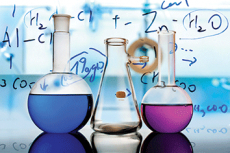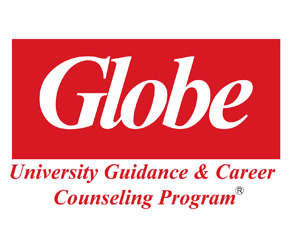Which branch to choose in the 12th? LS, GS, SE, LH

These orientation’s areas of concentration, as their name suggests, are all of the four major life sciences: Biology, Chemistry, Physics and Mathematics. Out of these four subjects, biology is the one most focused on. That’s why it is graded over 100, whereas the rest of the scientific subjects are graded over 80. These four subjects make up to 60% of the overall average.
So as a LS student, you are expected to invest the greater part of your time in these four subjects, since they are the ones that actually determine your success or failure. This shouldn’t be any hard as long as you’re willing to understand them and to solve as much exercises as possible. The more exercises to be solved, the better knowledge to be gained. For each single exercise or problem you solve, the easier it is for you to detect and find a solution for the tricks teachers are good at using.
The other 40% of the grade is distributed over the six remaining unscientific subjects: Arabic language and grammar, first foreign language and grammar, philosophy and civilizations, history, geography, and civic education.
These subjects are somehow dependent on each person’s scope of the social and cultural background. However, they can also be very easily learned and mastered. All you have to do is simply understand, and memorization will automatically follow. As to languages, you have got the golden rule of mastering any skill you set your mind to: “Practice makes perfect, (or close enough)”. Make sure you read a lot and work on improving your listening, comprehension, and writing skills, in both your mother tongue and your first foreign language, since you need both. Take the initiate and start now.
If you believe you are good enough at both, sciences and humanities, then Life Sciences is the most optimum choice for you. It’s true that it will be tough, but your efforts will pay off very handsomely. The best thing about it is that once you’ve got your official certificate, all the majors of the world are yours for the taking. You can choose a major in Biology, Computer Science, Psychology, Pure Mathematics, Business, Literature or any other domain of specialty. There’s just no limit whatsoever. So if you’re still not sure what domain you’re going to major in after graduation, and you do not wish to limit your choices, I advise you to go for Life Sciences.
But knowing what exactly you want to do later at university make things much easier for you. When you know what you want, the probability of making the right decision will increase exponentially, and your chance of passing the exams with a high average will multiply.
So if you know that what you want is to be a medical doctor or a nutritionist, you will walk through the classes of Life Sciences “like a boss!” However, if you’re sure that whatever you will choose to major in at university will have nothing to do with Biology, then why not explore one of the three other domains: General Sciences (GS), Literature and Humanities (LH), and Sociology and Economics (SE).
When you are still fond of sciences in general, but you cannot stand biology, nor can you picture yourself in any related major or domain, there comes the General Sciences (GS).
Once in General Sciences, you can rest assured that your break-up with biology will run very smoothly and that your bio-nightmare will know no return.

Once in General Sciences, you can rest assured that your break-up with Biology will run very smoothly; since General Sciences students do not take any Biology classes. Knowing that, you can gladly bid your bio-nightmare goodbye!
Even the old ties with Chemistry will be cut as well, but only partly. So students doing General Sciences would take similar Chemistry classes as SV students, but the materiel will be less condensed. Besides, the official Chemistry exam will be graded over 80 instead of 100 as in Life Sciences.
However, the greater load will shift to the two major subjects: Mathematics and Physics, which make up together almost 50% of the overall average. This implies that a GS student who wants to pass the official exams has to put a great deal of his/her efforts in these two subjects, which will require a lot of practice and concentration.
The other 50% of the average is distributed on the rest of the humanities subjects: Arabic Language and Grammar, First Foreign Language and Grammar, Geography, History, Philosophy and Civic Education.

Just like Life Sciences students, you can easily manage with these classes if you follow the same tips as mentioned earlier. What is sure is that you cannot totally neglect them just because you’re trying to focus on the sciences classes. Remember that they stand for 50% of the final grade. This means that you’re supposed to spend as much time on them as you do on the scientific subjects if you want to get a really good grade..
As a GS graduate, your options at university are related mainly to majors that require a good mathematical background. Some of these majors are Electrical Engineering, Mechanical Engineering, Computer Sciences, Information Technology, Aircraft maintenance, Physics and so on. In fact, you can do whatever major you choose to do, as long as it has nothing to do with Biology, unless you take extensive related courses.
As its name suggests, Sociology and Economics are the main two subjects students doing SE focus on. Each of the two is graded over 80, which is the highest grade compared to the rest of the subjects. However, together they stand for only 30% of the total average.

The subjects that make up the highest percentage are those related to humanities: Arabic Language, Philosophy, First Foreign Language, History, Geography and Civic Education. These subjects amount to 45% of the total average, which is quite a considerable percentage, not be neglected in any way. These subjects require mostly a good capacity to memorize, so if you’re someone who values practicality over theoretical analysis, SE might just not be the best choice for you.
The rest of the scientific subjects, mainly: Biology, Physics, Chemistry and Mathematics hardly come to 25% all in all, with a concentration in Mathematics in particular. So the latter is graded over 70 while the rest of the scientific subjects are graded over 20 each.

Just like any other orientation, students with a background in Sociology and Economics have plenty of options to choose from later at university. After graduation, they basically apply to business school to major in business, economics, marketing, accounting, management, finance or any other related concentrations. But that’s not all! They’ve got even more options to consider outside the world of business. For example, they can apply to majors like political sciences, psychology, translation and languages, mass communication, philosophy, history, education, literature, nutrition, and any of the majors specializing in design: architecture, graphic design, interior design, landscape design and many many more …

On ne peut également oublier la Philosophie dans ces deux matières qui se combinent pour former un total de 140. Les étudiants seront débarrassés de la sociologie et de l’économie et toutes les matières scientifiques seront sur 20, exception faite des maths notées sur 40. Si tu es brillant en langues et possédé d’une soif d’en savoir plus sur les modes de pensées des différents peuples qui se sont succédés sur notre bonne vieille terre, alors la décision est là, claire comme le jour, opte pour les Lettres et Humanités.






















